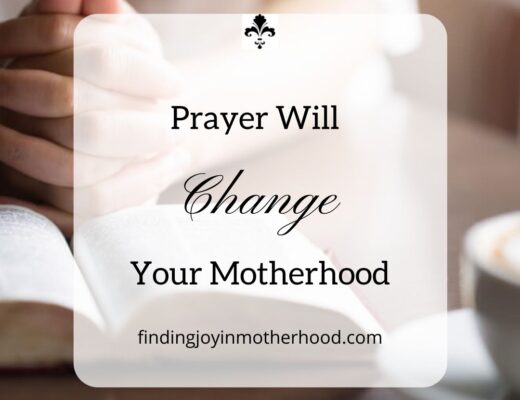For this Mama, one of the most important responsibilities I had was to teach my children to be honest. I knew that someday, my sweet little toddlers with their angel-face smiles would grow up to be teenagers who had to decide to leave a party because there was alcohol or make a decision to take the answers that were being passed around to a particularly hard test.
Someday they would be in a relationship where their spouse depended on them to be sincere and live with integrity in the relationship – to say no to porn, no to husband bashing, or no to lies of emotions that cause resentments.
Teaching my children to be honest with themselves and with me about their actions would also teach them to be honest with God about their actions and/or inaction.
Honest But Not Too Honest
What I didn’t expect was that my 6-year-old son would blurt out at our dinner table to our invited guest, “You have a big nose.”
Truth be told, our guest DID have a big nose.
But after that episode, we also spoke to our children about truth and charity and how they can coexist!
If I Think It, It Must Be True
We live in a world where truth has become subjective. No one wants to hurt anyone’s feelings, so we don’t challenge them in matters of truth. We have become so enslaved to how we feel that we have completely lost sight of what is truth.
If I think it, it must be true.
And yet, that is not so. What a dangerous slippery slope that puts us on!
Helping our children understand the difference between truth (facts) and opinions is the first step in teaching them to be truthful.
We also need to warn them (gently or strenuously depending on their age) that many in the world have not been formed to recognize, speak, and value the truth. They should be prepared, long before they’re teenagers, that even though others don’t speak the truth, they must.
Forming Their Conscience
It’s about forming their conscience – helping them discern between fact and opinion, truth and deceit, half-truths, exaggerations, manipulations, and falsehoods.
And we do that by clearly explaining and pointing out where they have swerved from the truth. This is not a one-time, sit down with your child and tell them. It is a life-long teaching moment – asking them, “Are you sure that’s the truth?” “Is that what really happened?”
Helping them see people tell the truth (or not) is a great opportunity for them to cultivate their judgment. In many books, you’ll find characters that either lie outright, or deceive. If you’re reading aloud to them, stop and ask your child what they think – what will happen if the character doesn’t tell the truth?
Make sure you focus on the lie rather than labeling the liar. Labels are never helpful and many personalities tend towards believing a label about themselves so they continue to lie. “Well, I’m just a liar so I can’t do anything about it.”
Get to the root of why they lied and help them overcome that weakness.
How Do You Teach Your Child to Be Honest?
Lead by Example
- Say what you mean and mean what you say.
- If you don’t follow through with your words, then your children will come to believe that what people say isn’t worth much – not to be relied upon. Therefore, their words aren’t important so telling a lie is a big so what.
- Don’t exaggerate.
- Exaggerating is a common problem in our world. We have exaggerated our feelings and the problems of life to the point that we have one reality in our head and another in the physical realm.
- While I know that there are some people who are “anxious” or “depressed”, the terms have been thrown around so much that they have lost their true meaning. Now, everyone is anxious or depressed. It’s important for words expressed to have proper meaning.
- Don’t tell ‘little white lies’.
- The most important way to teach our children to be honest is to be honest. They are watching and listening. And if it’s ok that you tell a ‘little’ lie to prevent embarrassment or avoid a situation, why can’t it be ok for them?
- Be truthful with your children.
- Always tell your children the truth unless the truth is too personal or not appropriate for them to hear either because it will harm them emotionally or scare them. If you and your husband are having serious marital problems, it is not appropriate to tell your children all your husband’s faults or the latest way your husband has angered you.
- It is enough to say that it isn’t their business. And that’s the truth.
How to Respond to Dishonesty
Don’t overreact. As soon as you start yelling or screaming at them, you’ve lost the opportunity to teach. Clearly articulate how they were untruthful (ie, exaggeration, not telling the whole story, lying to avoid punishment) and then give the consequence. For instance, if they went to the pantry and stole a cookie, they would not get cookies the next time you served them.
Reward the truth. If you ask them if they are telling you the truth and they say no, sometimes their embarrassment of admission is enough of a consequence. Thank them for telling you the truth, acknowledging that you know it must have been hard. (Check out THIS POST for how to teach courage.)
Be careful about expecting too much from them. Sometimes we are too demanding when they are young for them to tell the truth. Typically, a 5-6 yr old knows the difference between the truth and a lie. Form them, through your words and actions. When they are of school age you can start holding them responsible. Of course, you need to know your own child. Many children can be held accountable before then but be kind yet consistent and firm. You don’t want to start exacting punishment about lying when they’re too young – they will never feel safe to tell you the truth.
Why Do You Teach Your Child to Be Honest?
In life, all we have that is truly our own is our integrity – our word and the content of our character. Teaching a child to not only be truthful with you, but also true to himself and his moral compass grounds him. Teaching your child to be honest in the little things of life when they are young, gives them the memory muscle, the habit, and the conscience to be true to himself and others when he’s grown.
We always told our children that their independence was earned by how much we could trust them. They knew that if they lied to us, they lost ground in our trust and their freedoms. We let them know, as teenagers, that if we couldn’t trust them to be truthful, we couldn’t trust them to make the right decisions in their freedoms. With freedom comes responsibility – and they were responsible for being honorable.
Finally, it is hard to love a spouse or friend who is not truthful with us. Teaching your child to be honest will help them in all their interpersonal relationships.
My prayers for a great week-end!
Janet





No Comments